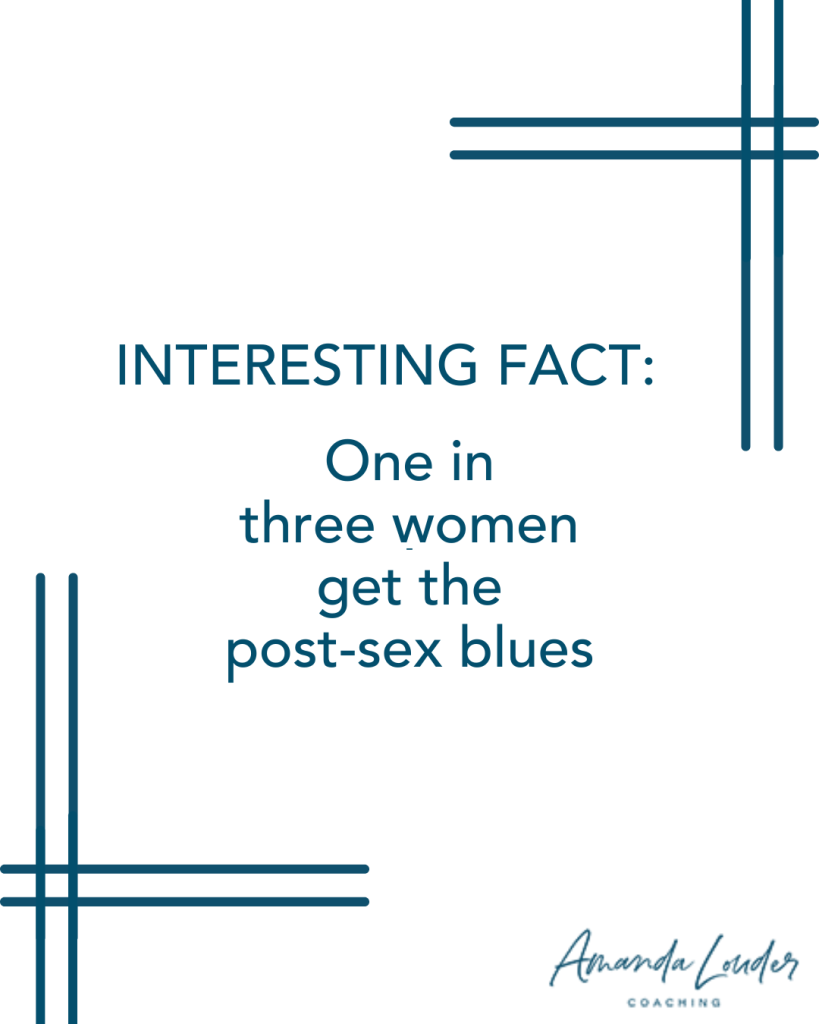
At first thought, money and sex may not seem to have a lot in common. But if you think about it, when you improve something about your relationship, it often extends to all of your relationship. That’s why I asked Ruth Liebel to join me on the podcast to talk about money. Ruth is an amazing financial coach that will help you see that we often come into our marriages with different ideas of what it means to be “good” with money. Listen to get some clarity about how you manage your money in your marriage, and how improving that part of your relationship will improve your sexual relationship as well.
Ruth Liebel (Lee-bull) is a financial coach who teaches Christians how to make decisions with their resources that improve their quality of life and support their values. She specializes in helping couples get on the same page, and in creating healthy boundaries around money. Too many lives, marriages, and families are short-changed, even destroyed, by financial chaos. The solutions to so many financial problems are simple and can become commonplace in our homes.
Ruth got her bachelor’s degree in family finance (debt free) and did her practicum in financial counseling. She has worked with domestic violence shelters, HUD, Head Start, churches, and non-profit organizations. She is a certified YNAB Budget Coach, completed Ramsey Solutions Master.
Coach Training, and was a Ramsey Preferred Coach the first two years of her coaching business. Ruth is madly in love with her husband of 17 years, and the biggest fan of her four kids. Her husband came from a very different financial culture than her, and it has been a long, diligent process to create a financial theology and plan that satisfies them both. She knows “good debt” does NOT feel good; vulnerability is scary; healthy boundaries are the difference between joy and
hell; and having somewhere safe to process your thoughts and options is a total game-changer. She absolutely loves her life now, and loves helping people create a life they love as well.
You can find her:
At her website: www.ruthliebelcoaching.com
On Instagram: @ruthliebel
And by emailing her: ruth@ruthliebelcoaching.com


Show Notes:
Follow Amanda on Facebook and Instagram.
Join Amanda’s Private Facebook Group.
References for this episode:
You can find Ruth Liebel at:
At her website: www.ruthliebelcoaching.com
On Instagram: @ruthliebel
And by emailing her: ruth@ruthliebelcoaching.com
Show Summary:
Amanda: Finances are one of the top reasons cited for why people divorce. Money tends to be a sensitive topic with a lot of couples because we all come from different backgrounds and we value and prioritize different things when it comes to money.
Today on the podcast. I have Ruth Liebel. Did I say that right?
Ruth: Yep.
Amanda: Okay. Good. Who is a financial coach and she’s here to talk to us about why marriage and sex and finances overlap and how to make this part of your marriage better. So welcome to the podcast, Ruth.
Ruth: Thanks, Amanda. I’m super pumped to be here. Two of my favorite topics, sex and money.
Amanda: Mine too. Awesome. Okay. So why don’t you share a little bit about who you are and what you do with my audience?
Ruth: Okay. Like Amanda said, my name is Ruth Liebel. I’m a financial coach. I help Christians build their abundant life through intentional spending. I specialize in helping couples get on the same page, just like Amanda was saying. It gets messy when we join two ways of viewing the world and approaching money. It gets really, really messy. Um, in fact, the statistic is that 90 percent of divorces that happen within the first seven years of marriage are due to money. So money problems are a killer for the young marriage.
I’m obsessed with the topic. I’ve been learning and studying and spending and buying and making and spending money my whole young life.
Um, my degree is in family finance and I have taken all kinds of money courses. I just love it. So it’s my passion outside of my four kids. I’m a stay at home mom first and foremost, and this is my part time gig. Um, but it’s my obsession, so I’ll just say that.
Amanda: Well good. It sounds like I’m in good company here.
So let’s talk a little bit about why so many couples struggle with finances. I mean, we’ve touched on a little bit, like we come from different ways of doing things, right? But I think there’s more to it than that, but I think you’re the expert here so why don’t you tell us?
Ruth: Um, well, there’s a couple of things that I see the most in couples.
Um, the primary one is we have different ideas of what it means to be good and bad with money. A lot of times my couple, you know, the couples come to me, there’s usually one that wants to take the reins and it’s like, I need you to help me get my spouse on the same page with me, which really means I need you to get my spouse to think the way I think.
So, um, oftentimes the spouse that was “bad” with money when they work with me and I, you know, show them you’re not actually bad with money, you just have a different skill set, you’re stronger in different skill sets than your spouse. Um, maybe you have a weakness and where they’re strong, um, but you’re actually super strong and I’ll show you why and we prove it and we show them the numbers. They tend to be the ones that become even more confident with their money. And the one that came to me being like, I need you to help me get my spouse on the same page is like, whoa, you turned my spouse into a monster.
So, that’s what I find the most is just different ideas of what it means to be good with money, which is why I’ve developed, I have four pillars of money mastery. There’s four areas in it. The first one is to make and grow money. The second one is to preserve money. The third one is to enjoy money and the fourth one is to give and share money.
And a lot of times when we think being good with money, it’s usually the make and grow or the preserve.
Like, you know, I’m the saver. My spouse is always spending money, whatever. Um, but the reality is there’s the four pillars and you have to have harmony in all four pillars, or you’re going to feel it in your finances. You’ll feel it.
Amanda: Yeah. And you’re going to fill it in your marriage too, I think.
Ruth: Yes!
Amanda: And why is it that the spender and the saver seem to always marry each other?
Ruth: It’s the yin and yang. It’s that funny polar opposite. We’re interesting to each other. We feel that we need each other. It’s just that yin and yang attraction.
Amanda: Yeah, I totally agree. I think so many times when we’re looking at a partner, we’re looking at someone to compliment us in, you know, where they’re strong, where we’re weak.
And those two things tend to be very opposite. And so we’re like, Oh, I struggle with money and they’re really good at saving it. Or the person who’s really good at saving it, you know, they tend to be more strict around it. And they’re like, I love that they just have so much freedom. And so what I always talk to couples about when it comes to a lot of things is, you know, we have different values around things, you know, and money is one of those, whether we’re spending or saving, you know, but then, and it’s not that like, I would guess that most people value money in some way. I’m sure there’s other people that don’t, but like most people do, but the priority that they put on that is different.
Like, so an example that I often use when I’m talking to couples is, you know, one person really values safety. And money means safety and security. And so that person, like the savings is really high on their priority list. But then like the other person maybe values freedom and how they feel freedom is the ability to spend where they want to.
Safety and security is good. Freedom is good, but where we prioritize those might be different. And that’s where a lot of the conflict comes in. Do you see that?
Ruth: Yeah. And, I work with, I didn’t create them, I didn’t create the five money personalities, but I work under five money personalities and when the couples understand their personality, it gives them a language really of how to talk about it and everybody values money. We just don’t think that we do because the way I define money is, um, exchanging your time, your talents, your energy and your ideas with other people so that you can improve your quality of life and support your values. So, some people will be like, I don’t need money. I’m humble. But then they actually do a lot of exchanging with people that doesn’t involve currency. They’re just trading. Instead of trading their currency for something, they’re trading their time or their energy, which actually is a huge financial value. So you do value money, it just comes in the old school form of bartering rather than like currencies.
And, it’s because money gets us an exchange for something. If you’re in a relationship with somebody, whether it’s business, relational, family, like whatever it is, and you feel like you’re the one who’s constantly giving, you’re the constant producer and they are the constant consumer, you’re going to stop doing business with them.
Like that’s in your marriage exchange. That’s in your family exchange. That’s in your friend exchange. If you’re the constant producer. And they’re the consumer, you quit. So you do care about managing money and having a reciprocal economy, right? These are the words I use.
Amanda: For sure. And I think that it brings up a really common dynamic that I see in marriages because I think, you know, there’s issues like sex, money, you know, all that parenting, that kind of stuff. But then there’s dynamics. And issues are different than dynamics, but both definitely influence the marriage. Right. And so I feel like a lot of times when it comes to sex and finances and so many other things, um, there’s a couple of different problematic dynamics that happen. There tends to be like an Underfunctioner and an Overfunctioner or like sometimes we get into more like of a parent child dynamic.
Ruth: Big one. Huge.
Amanda: Right? Do you see any other dynamics within your work?
Ruth: The parent child dynamic is a big one that I see and work with. Huge. That’s a big one.
And then it’s, it’s kind of hard to get out of, um, and again, it’s that yin and yang thing. The stronger you show up in your yin or your parent dynamic, the more your spouse is going to play into that child dynamic. It’s that trust factor. Like I’m afraid to let this go and let you step into it because if it falls through the cracks and that means utilities don’t get paid, that means the insurance doesn’t get paid or that means you don’t go to work and make the money that we need. So that’s a hard one for sure.
Or the child. I guess I work with, you know, the child will come to you like, I’m sick of this. My spouse keeps complaining and I want to step into it and I want to keep my head in the sand and I want them to take care of it because that’s what it, you know, that’s what the mom is supposed to do or that’s what the dad is supposed to do depending on what the family of origin practice was. But the parent child dynamic, that’s a really big one. And that’s where I can see it affect the other places of marriage. And I would assume especially sex. If you feel like the parent in your marriage, in life, it’s not a turn on.
Amanda: No, it is not.
Ruth: It’s gross.
Amanda: Yeah. No, we are not supposed to be attracted to people we take care of.
Ruth: Yes. Yeah. That’s just, it changes things.
Amanda: Yeah. Right? Well, and I think that’s especially true as women. I think a lot of times men, and I could be totally wrong about this, um, often feel like it’s their responsibility to take care of, right? But then a lot of times they also resent that responsibility.
Ruth: Yeah. Well, it’s that innate primal, they’re the protector and the provider.
Every animal species has different roles, but in the human species, it just feels like that’s the primal thing for the man to go out and kill the food and bring it home to the little lady. And so when I work with couples, it’s obvious to me that men take it more of a score card.
Um, this is something that I hope ladies can understand. This is very,very deeply primal to him that he is successful with finances. So, if he needs you on board, he needs you on board. It’s very primal to him. It’s his like, it’s his report card as a man and he needs to feel your gratitude for that and he needs to feel your respect.
These are two words that men really need to hear. The third one would be appreciation and the flip side women, the words that they’re going to use around money as safety. Um, they need to feel safe in their nest that they can nest and have babies with you and that they can trust that, you know, the den is going to be protected and it’s going to be provided.
There’s going to be food and their babies aren’t going to starve. Um, I would say the social game also is probably evenly distributed between both sexes. Um, again, these are report cards for each other about how successful you are in the tribe, um, how useful you are to people. And that’s like the primal, I will be successful in life because I’m useful to my tribe and it’s proven by how I can collect things, how I can make things shiny, how I can produce things.
So, yeah, it’s big for both sides, but the lingo that stereotypically they use is different. That women is going to be safety, they need to feel like they can trust their provider to pay for the bills. She needs to feel safe and he needs to feel respected and appreciated.
Amanda: Yes, but a lot of times I think men take that as, I will feel respected and appreciated when she gives me sex because I bring home the money.
Ruth: Okay. That might be a primal thing, maybe. I don’t talk with my couples about sex, so I cannot link that directly. All I know is the direct correlation that my couples do report better marriages in all areas of their life once we help them figure out their money stuff.
Amanda: Well, I think they’re so linked because I think there is that, that exchange that is often, and I don’t even know that it’s conscious a lot of times, but that, like, no, I’m going to go out and I’m going to, you know, earn a good living and make sure that you’re taken care of. And so I need to be taken care of in the bedroom. And so that’s where I see a lot of the finances and sex overlapping is that it’s almost becomes transactional, which is not what we ever want with sex.
Ruth: Yeah, that’s gross. The interesting thing that I see about sex and money is people who are successful in life have a higher sexual energy.
Amanda: Yes.
Ruth: Right. So I don’t know if that’s, I mean, I have theories about that. And in fact, um, in the book Think and Grow Rich, he touches on this, they just have a higher sexual energy.
And if you think about it, like from a Christian perspective, it’s a productive energy. It’s a creating energy.
Amanda: It’s Eros energy.
Ruth: Okay?
Amanda: Eros energy is…we often talk about like erotic energy, which the word erotic is from Eros, but Eros energy is the life giving energy. It’s the creative energy. It’s what helps us be successful in things. So that makes total sense to me that when they’re using that energy to create good things in, you know, their work life and their business life and in their finances, that’s going to translate to them in the bedroom. If they’re being successful in one area, then they’re successful in a lot more
Ruth: Yeah. I totally agree with that. And if you look at, you know, this is the stereotype that I deal with is people are afraid to become wealthy because they think that the wealth will corrupt them. It means that they’re going to like leave their relationships. It means they’re going to become, you know, sexually exploitive.
You look at all the top tier, usually it’s men right in there. Yeah. They’re kind of horndogs. Let’s be real. You know, they get into polygamous, you know, behaviors, they get into cheating and it doesn’t actually have to be that way. I mean, those are the ones that are like the, the biggest in the face, but there are so many wonderful millionaires that they have sound, healthy relationships.
In fact, you know, you can point to most successful men and once they start to get into that, like polygamous or cheating energy, they actually have a like a dip down. You have to use that energy in good boundaries and those who have successful marriages are great.
The flip side, you know, I would love to do a study more on the correlation. I know that there’s a correlation. If you have a good sexual energy in your marriage, then your finances go up and then also the other way around. So, it might not be transactional, but like, Hey, if it boosts his energy at work, girl, it’s like…
Amanda: Well, I think finances and sex are the same in that whatever is, you know, true and good inside of us is only going to be magnified when it becomes a bigger part of our life. So like if you are innately, you know, a generous person and a good person, when you have more finances, then you’re going to continue to be generous. Like it’s not going to corrupt you unless that was already part of your life.
When you. And, a lot of women especially think that if they become more in tune with their sexuality, then they’ll just become like this sexual deviant. That doesn’t happen. Like, I mean, rarely, because that’s not who they are innately. It magnifies your goodness. And I think that, I think that’s the case for both money and sex.
Ruth: Yeah. Well, I think it’s…money and sex are both so powerful, right? Like it is power and power can be used for good or for bad. And I think that it’s interesting that there are few, I mean, these are the two topics I’ve worked at in women’s health clinics. And talked to women and to men about their sexual behaviors and their STDs and their partners and all the things. And I’ve also been a financial counselor, a financial coach, and it is, I would say that money is a smidge more on the like they’re more hesitant to talk about those things than sex, but both of them have very negative, heavy, shameful energies around them.
And I think that that’s interesting because, um, it also makes sense because if you want to win at something, understand these two powers and be really good at them. So it’s in the adversary’s interest for these two areas to be misunderstood and to be misused, but especially for good people to misunderstand these and be afraid of obtaining them.
Amanda: Absolutely.
Ruth: Because if good people can have these two powers, I mean, then goodness will just reign, right? So, yeah, so it makes sense, especially for women because women are so powerful. We’re like the misunderstood powers of the house. We are the heart of the home. We are the center of culture. We are the glue to society.
Like men build it. We keep it together. We fill it with life and happiness and abundance and beauty. Um, so if women feel shame around being good with money or shame around being sexual creatures, it’s a win for the adversary.
Amanda: Totally agree with that. You brought up, um, and I can’t remember exactly how you said it, but a few minutes ago, but I think there is a lot of anxiety around money and sex, right? And so we tend to like hold onto those things and try to control those things so hard so that we don’t have to feel that anxiety. What do you see in your practice when it comes to like anxiety around money?
Ruth: I connect anxiety to a lack of clarity. It’s like cause and effect. The less clarity you have in your finances, the more anxiety you’re going to have. That feeling of, words that my clients tell me when they start working with me is it’s like a slot machine. When you put the card in the machine at the grocery store and like, maybe it’ll go through this time, maybe it won’t.
Or like the constant feeling of guilt about spending anything because you don’t know if that money was needed for something important. Um, just all that constant, like maybe we’ll have money for the bills, maybe we won’t, but just the clarity that my clients get just that first month or six weeks when we get their money all lined out and we can show them like, look, you have money in your envelope, right?
Like it’s there that the money is sitting there for your mortgage. It’s going to get paid. The money is sitting there for your utilities. It’s going to get paid. The money is sitting there for your clothing fund. You can go spend money on your clothes and nothing else is going to be bothered. Um, that clarity and understanding that is when people are like, yeah.
Amanda: I think that is such a key word in clarity. And I think clarity comes from information, right? Understanding. And I think that’s the same around sex.
You know, we do not have a comprehensive sex education in this country and most people are not getting it from their parents either. And so they don’t have clarity, which is why they have anxiety. They don’t have the information that they need to be successful and to have that power and use that for good in their life because they don’t have that clarity. So there’s so much anxiety around it. I think that’s such a crucial piece that you hit on because information really is power, right? When you have that information, then that anxiety goes away.
Like I can honestly say that I used to have so much anxiety around sex because I didn’t understand my body. I didn’t understand how things work. I didn’t understand my belief systems. I didn’t understand what I thought God wanted for me and my sexuality. I didn’t understand any of that. And once I had that clarity, I no longer had any anxiety around it.
Ruth: Yeah. And it’s also from the shoulds or the shouldn’t.
Amanda: Yes. Yes.
Ruth: Yeah. What does a good girl do? What does a bad girl do? What am I supposed to do? All those like external confinements and blek!
Amanda: For sure, for sure. Okay. Is there anything else you want to share or think that we need to talk about before we end today?
Ruth: Um, sex and money. Get good at both. Your life will be happy.
Amanda: Yes. I agree.
Ruth: No, this has been fun. I’ve liked this.
Amanda: Okay. Well, I want to make sure that my audience knows where they can find you because I just adore you. And I love what you have to say and what you have to teach. And I think if you’re really struggling with money, Ruth is a really great resource to follow and to work with. She can help you get that clarity, just like I can help you get the clarity that you need around sex. So where can they find you, Ruth?
Ruth: Ok, my website is www.ruthliebelcoaching.com. You can find me on Instagram @ruthliebel. Um, I have a Facebook page, but I’m not very active. So those are my best two places.
I’m launching my spring session of Abundant Budgets, which is where we get you a written, like modern budget. None of the Excel spreadsheets that are like hidden on your husband’s work computer that you can’t touch and know how to use. Um, and then just also the mindsets, the five systems that we automate your success. So you don’t have to be making all these constant decisions. Um, I do some private coaching when I have spaces. Um, and then email me, um, ruth@ruthliebelcoaching.com. I love questions. I’m very, very generous with knowledge. I want people to get what they need. So those are the three best places.
Amanda: Awesome. Thank you so much for being here, Ruth.
And just for those of you who are interested, I know a lot of you have thought about joining my membership. We’re going to have Ruth do a class in my membership in the next couple of months. So if you would like to hear more from her and what she has to say, feel free to come into the membership as well so that you can listen to her class. Cause I’m sure it’s going to be amazing.
Ruth: I look forward to it.
Amanda: All right, my friends, I hope that was a very interesting interview and gave you some good insights into your own marriage and relationship with money. And again, come into the membership. Ruth is going to be teaching in there in a couple of weeks. And so I would love to have you learn more from her and how to help with the finances along with the sex in your marriage.
Thanks for being here and we’ll see you next week. Bye bye.



